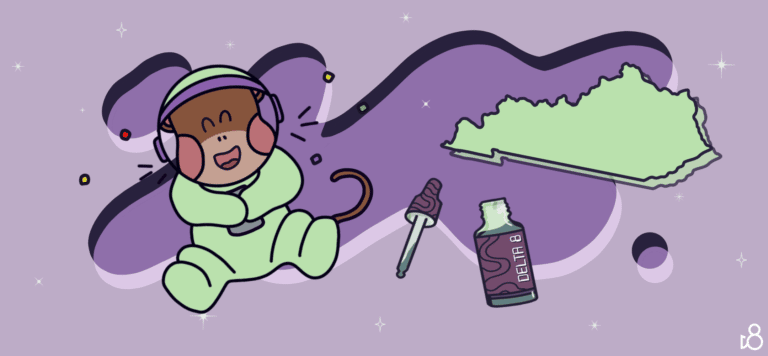How to Get Vape Juice Out of Clothes: Quick Cleaning Solutions
Oops! Dripping vape juice on your outfit is a total drag, especially if you’re out and about. From personal mishaps, I get how tough those marks are to scrub out, thanks to the special mix in the liquid. You see, vape juice is a cocktail of propylene glycol, vegetable glycerin, flavors, and nicotine, making those spills real pesky to clean. The trick to kissing those stains goodbye is to jump on them fast and tackle them with the perfect cleaning move that zeroes in on vape juice’s tricky formula.
Table of contents
In my experience, addressing the stain before it sets into the fabric is crucial. This calls for a careful balance between gentle treatment to preserve the integrity of the clothes and a robust approach to lift the stain effectively. Over time, I’ve learned that there are several household items and laundry products that can come to the rescue. Each stain scenario might require a different approach depending on the fabric type and color of the garment, but there are general methods that consistently yield good results for removing vape juice stains.
Understanding the properties of the fabrics I’m dealing with has also proven instrumental in achieving a stain-free look after a vape juice spill. By directly applying certain cleaning agents, followed by a rinse or a machine wash, it’s possible to tackle the stain without causing damage to the clothing. Being knowledgeable about various methods and having the ability to adapt the cleaning process has equipped me to handle vape juice spills effectively, ensuring my clothes remain stain-free and presentable.
Understanding Vape Juice and Fabrics
In addressing vape juice stains, it’s vital to know the substance’s makeup and how it interacts with different fabric types. Different fabrics require specific care, which can affect the stain removal process.
Components of Vape Juice
Vape juice, or e-liquid, contains several primary ingredients that can influence how a stain can be treated:
- Propylene Glycol (PG): A colorless, viscous liquid used as a base in vape juice. It’s notorious for creating oily stains on fabrics.
- Vegetable Glycerin (VG): Another base substance, VG is thicker than PG and can also leave stubborn stains.
- Nicotine: While nicotine itself is colorless, its presence can complicate the stain removal process.
- Flavors: Containing various compounds, flavors in vape juice may cause discoloration on fabrics.
Understanding these components helps in choosing the right cleaning method, as different ingredients can react uniquely with fabric types.
Types of Fabrics and Their Care
Different fabric types react differently to stains and cleaning treatments. Here’s a brief overview:
- Delicate Fabrics:
- Examples: Silk, lace
- Care: Handle gently; avoid harsh chemicals or scrubbing.
- Standard Clothing Fabrics:
- Examples: Cotton, polyester
- Care: Typically more durable, can handle a variety of cleaning methods.
- Specialty Fabrics:
- Examples: Wool, leather
- Care: These require particular attention; wool, for instance, should not be exposed to high heat.
For white clothes and light-colored fabrics, treating stains promptly is crucial to avoid permanent discoloration. When treating any stained clothing, it’s imperative to refer to the care label and consider the fabric type to prevent damaging the material.
Immediate Response to Spills

When encountering a vape juice spill, it’s imperative to act swiftly. The two initial steps I take involve blotting and rinsing which are crucial to prevent the stain from setting into the fabric.
Blotting the Stain
As soon as I notice a vape juice spill on my clothing, my first move is to gently blot the stained area. I do this using paper towels or a clean, absorbent cloth. I avoid rubbing the stain which can cause it to spread; instead, I press down lightly to soak up as much liquid as possible.
- Do:
- Use paper towels or a clean cloth
- Blot gently
- Don’t:
- Rub the stain
Rinsing with Water
Immediately after blotting, I rinse the stained area with cold water. It’s important to use cold water because hot water may set the stain deeper into the fabric. I run cold water through the back of the fabric, which helps push the vape juice out of the fibers.
- Do:
- Rinse with cold water as soon as possible
- Apply water to the back of the stain
- Don’t:
- Use hot water
Pre-Treatment Approaches

In my experience, tackling vape juice stains promptly is key. Before laundering, pre-treatment is essential to break down the e-liquid components like propylene glycol and vegetable glycerin, especially since they are known to create stubborn stains.
Using Dish Soap
I recommend using dish soap as the first line of defense against oil-based stains like those from vape juice. Here’s how I approach the task:
- Rinse the stained area with cold water to prevent the stain from setting.
- Apply a small amount of dish soap directly to the stain.
- Gently rub the soap into the fabric with your fingers or a soft brush.
The dish soap’s grease-cutting properties are particularly effective at breaking down the oily components of vape juice.
Applying Stain Remover
When dealing with particularly persistent vape juice stains, I find that a dedicated stain remover is a must-have. The process is straightforward:
- Choose a stain remover formulated for treating oil-based stains.
- Apply the stain remover directly to the stain following the product’s instructions.
- Allow the remover to penetrate the stain for the recommended time before laundering.
By using a specialized product, I increase my chances of removing the entire stain, as these removers are designed to target and lift the compounds found in vape juice stains.
Washing and Stain Removal

When dealing with vape juice stains on clothes, I’ve found that the right approach to washing and stain removal is crucial for success. Below, I’ll guide you through choosing an effective laundry detergent, selecting the proper water temperature, and handling bleach use specifically for white clothes.
Choosing the Right Laundry Detergent
For effectively lifting vape juice stains, I recommend a liquid laundry detergent due to its ability to easily dissolve and penetrate fabric fibers. Liquid detergents are excellent for treating stains directly with pinpoint accuracy. A small amount applied directly onto the stain before washing can significantly improve stain removal.
Optimal Water Temperature
The temperature of the water plays a significant part in the stain-removal process. For vape juice stains, cold water is generally the best choice for initial treatment as it prevents the stain from setting. Once the stain has been treated with detergent, I use the warmest water setting that’s safe for the fabric, as indicated on the care label, for the washing machine cycle.
| Fabric Type | Water Temperature |
| Delicate | Cool to lukewarm |
| Regular | Warm, as per label |
| Durable | Hot, if safe |
Using Bleach on White Clothes
When I’m faced with vape juice stains on white clothes, bleach can be a powerful ally. However, it’s important to use a diluted bleach solution if applying directly or add it to the bleach dispenser if using a washing machine. Remember to confirm that your garment is bleach-safe, which is often indicated on the clothing’s care label.
- Pre-treat the stained area with a bleach solution if the fabric can withstand it.
- Wash the garment in a washing machine, using the added bleach to facilitate the stain removal process.
After Wash Care
After washing clothes with vape juice stains, it’s crucial to handle them properly to prevent the stains from setting or the fabrics from getting damaged.
Drying Methods
For drying, I have two recommendations based on the fabric type. If the clothing item permits, I usually opt for air drying since it’s the safest way to preserve fabrics and avoid setting any remaining vape juice stains with heat. I lay the garment flat or hang it on a line, away from direct sunlight to prevent discoloration.
For garments that are dryer-safe, I use the lowest heat setting on my dryer. The reason for using low heat is to minimize the risk of any leftover vape juice stain becoming permanent due to the high temperatures.
Checking for Remaining Stains
Before I even think about drying the washed garment, I carefully inspect it for any remnants of vape juice stains. If there’s a hint of the stain, I avoid using the dryer entirely, as the heat can make it much harder to remove the stain later. Instead, I retreat the spot as needed and then wash again.
In cases where I can’t see any residue and I’m confident the stain is gone, I proceed with the drying method best suited for the fabric in question. Always double-checking ensures that I don’t have to repeat the entire process, saving time and preserving the integrity of my clothes.
Alternative Cleaning Solutions

When vape juice spills on clothes, it’s crucial to know a variety of methods to tackle the stain. I’ll share some dependable alternative solutions, using natural remedies and the option of employing professional cleaners, to effectively deal with those stubborn marks.
Using Natural Remedies
Vinegar: Vinegar is a versatile liquid that can break down the nicotine and colorants in e-liquid stains. A direct application of white vinegar to the stain before washing can enhance stain removal.
- Direct Application: Apply white vinegar to the stain and let it sit for 10-15 minutes. Rinse thoroughly with cold water before washing.
Baking Soda: For old e-liquid stains, baking soda can be used to absorb and lift the stain from the fabric.
- Baking Soda Paste: Mix baking soda with water to create a paste. Spread it over the stain and allow it to dry. Scrape off any residue and wash as normal.
Lemon Juice: Lemon juice has natural bleaching properties, making it effective for lightening stains caused by vape juice.
- Application: Soak the stained area in lemon juice for a few minutes and then rinse with cold water before washing.
Employing Professional Cleaners
If natural methods don’t yield the desired results, professional cleaners offer a robust solution. They have specialized products and techniques at their disposal to handle various stains, including those from vape juice.
- Professional Services: I recommend finding a cleaner with experience in treating nicotine and e-liquid stains. They will assess the fabric type and stain severity to choose the most appropriate cleaning method.
Spot Testing: Before using any of these methods, I always suggest doing a spot test in an inconspicuous area of the garment to ensure that the fabric won’t be damaged.
Preventive Measures and Tips

To minimize the occurrence of stains, I’ll discuss the importance of careful handling and certain protective practices that can be applied to limit vape juice spills on clothing.
Proper Handling and Refilling
When I fill my vaping device, I ensure to do it over a sink or a paper towel to catch any potential drips. It’s imperative that I fill the tank slowly and carefully to avoid overflow and leakage. Here are my specific strategies:
- Work in a Well-lit Area: This helps me spot any leaks as they occur.
- Follow the Manufacturer’s Guidelines: Each device is different, so I adhere to the recommended filling method for my specific model.
Protective Practices for Clothing
To guard my clothes against stains, I take steps to reduce the risk of vape juice coming into contact with fabrics. My approach includes:
- Wear an Apron: When I’m handling or refilling vape juice, I wear an apron to shield my clothes.
- Keep a Dedicated Cloth or Towel Nearby: I always have this on hand to immediately deal with any spills.
By adopting these measures, I manage to effectively reduce the incidence of vape juice stains on my clothes.
Frequently Asked Questions
In managing vape juice stains on clothing, it’s important to act promptly and use the right substances to break down the oils and pigments without damaging the fabric.
What are the most effective home remedies for removing vape juice stains from clothing?
Rubbing alcohol, vinegar, and baking soda are all effective home remedies for tackling vape juice stains. These substances can break down the oily residue, making it easier to remove during a wash cycle.
Can vape juice stains be quickly removed from fabric, and if so, how?
Yes, vape juice stains can be relatively quickly removed by promptly blotting the stain to remove excess liquid, then applying a spot treatment like dish detergent or rubbing alcohol before laundering.
What are the best cleaning agents to use on clothes stained with vape juice?
Dish detergent and laundry detergent are the best cleaning agents for clothes stained with vape juice. They are designed to break down oils and are gentle on most fabrics.
Are vape juice stains permanent, or can they be fully washed out of clothing?
Vape juice stains are usually not permanent and can be fully washed out if treated correctly using a combination of blotting, pretreatment, and washing with appropriate cleaning agents.
How can you prevent vape juice from staining clothes in the future?
To prevent vape juice from staining clothes, be cautious when filling your vape tank and store vape pens in upright positions away from clothing.
What are the steps to take when vape juice is accidentally spilled on clothing?
Immediately blot the stain with a clean cloth, apply a pre-treatment like dish soap or laundry detergent, then rinse with cold water to avoid setting the stain before washing the garment on the warmest setting allowed by the fabric care instructions.







